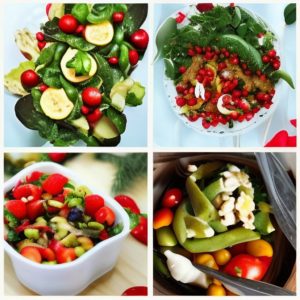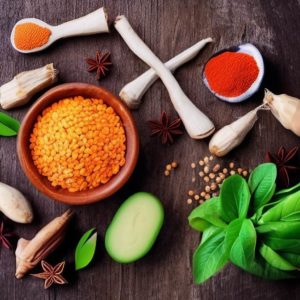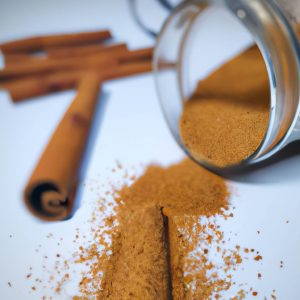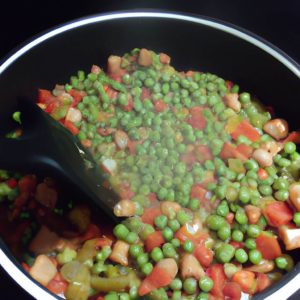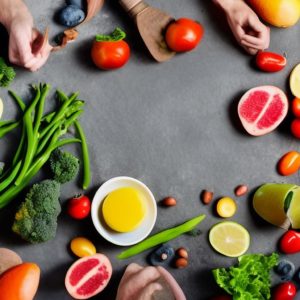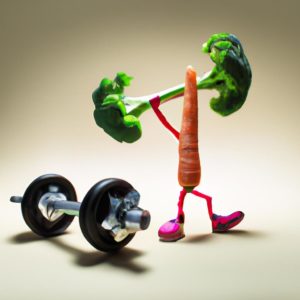6 Collagen-Rich Foods For Healthier Joints And Skin
Collagen can be found in everything, from food to cosmetics to medications to our coffee cups. They are now being touted as the best for your health, especially your skin and joints.
What is the truth about collagen? Is collagen worth the risk to your health and money? Do you need to pay attention when buying collagen-rich foods?
Top Collagen-Rich Foods for Your Joints and Skin Health
Collagen is readily available in many of the foods we eat every day.
High-protein foods often contain amino acids such as glycine and proline which aid in collagen production. To produce collagen, your body needs nutrients like zinc, vitamin C, copper, and iron.
These are the top foods rich in collagen that you can eat to have strong bones and glowing skin.
1. Sources for Animals
Collagen is found in animal proteins, particularly in connective tissue-rich meats and fish. Collagen can be found in hard cuts of meat, or the skin and bones from fish.
Beef and other meats are rich in zinc, which is essential for collagen production. Beef contains proline, glycine and hydroxyproline which are the three types amino acids that make up collagen.
There are good reasons chicken is the main ingredient of many collagen supplements. The neck and cartilage portions of chicken are great sources of collagen. According to a study published in Clinical Interventions in Aging Journal, arthritis can be treated with cartilage and neck parts of chickens.
The fish meat has less collagen than other meats. Here’s the thing: Both fish and shellfish contain collagen-rich bones and ligaments.
The reason fish and shellfish are preferred is the 1.5x higher absorption rate of fish collagen than other collagen sources like beef and pork.
Ironically, less is being consumed of the high-quality collagen-rich fish parts like the skin, scales, eyes, and head. These fish parts are high in collagen, so make sure you include them in your diet.
Oysters, which are rich in copper and aid in the creation of collagen, are another great seafood option.
Animal bones contain collagen naturally. Gelatin is a natural source of collagen in animal bones. Bone broth is one of the most popular and effective collagen-boosting foods.
The egg whites are rich in proline, an amino acid vital for collagen production. While the yolks of the eggs contain collagen, they also contain high levels of proline. You can have them in any way you like: boiled, poached or fried.
Many nutrients found in dairy products can help increase collagen production.
Here’s a list of foods that boost collagen from animal sources:
- Eggs
- Ribeye steak
- Pot roast
- Chuck steak
- Chicken wings
- Bone broth
- Fish and Shellfish
- Oysters
- Milk
- Yogurt
- Cheese
We don’t recommend eating a lot of animal products for a long-term sustainable and healthy diet. Please eat in moderation and keep in mind the factors above.
2. Vegetables
Increase your intake of leafy greens, as they are high in vitamin C. They are also rich in chlorophyll and antioxidant properties that are vital for collagen production and preservation. Bell peppers can be added to a healthy diet.
Bell peppers are rich in antioxidants, vitamins C, vitamin A, and amino acids that increase collagen production. Capsaicin is also found in bell peppers, which helps to reduce signs of aging.
The most beneficial bell pepper is the red one, due to its high Vitamin C level, which regulates the synthesis and production of collagen. It also contains Vitamin A which can help boost your skin and joints.
Broccoli, which is rich in Vitamin C, and some copper, can be included in your diet. It also aids in collagen production.
These are some suggestions for vegetables that may help with collagen production.
- Spinach
- Rainbow Chard
- Collard
- Kale
- Lettuce
- Bell peppers
- Pea greens
- Broccoli
3. Fruits
Vitamin C and antioxidants are abundant in citrus fruits, which play an important role in collagen production. Vitamin C is essential for linking amino acids in the production of collagen. It is important to get your Vitamin C. Vitamin C can also help you get glowing skin because it fights inflammation and flushes out toxins.
Berries are known for their antioxidant properties, which are great for your skin.
Vitamin C, copper and zinc are all found in tropical fruits, which can boost collagen production.
Sun-dried tomatoes and grapes are rich in vitamin C. This boosts collagen production and also contains lycopene which is great for skin health.
These are some collagen-rich fruit you can add to your healthy diet.
- Orange
- Lemon
- Lime
- Grapefruit
- Clementine
- Mango
- Banana
- Guava
- Kiwi
- Pineapple
- Raspberry
- Blueberry
- Blackberry
- Tomatoes
4. Legumes and Beans
Beans and legumes are high-protein foods that contain amino acids that help collagen production. Genistein, which is a collagen-promoting ingredient, can also be found in beans.
Many minerals and nutrients found in legumes and beans, such as zinc, copper and vitamin C, are beneficial for skin health. These legumes and beans naturally increase collagen production:
- Soybeans
- Garbanzo beans
- Fava beans
- Kudzu
5. Nuts and seeds
Excellent collagen-rich foods are nuts and seeds. They contain the essential amino acids necessary for collagen production that our bodies can’t produce.
There are many ways you can incorporate them into your daily diet. These foods can be eaten as quick snacks. These foods can be added to your next meal. You can think soups, salads and sandwiches, as well as pasta dishes, stir-fries, smoothies and other foods.
These are some healthy, collagen-boosting foods made from nuts and seeds:
- Almonds
- Cashews
- Hazelnuts
- Peanuts
- Pistachios
- Walnuts
- Sunflower seeds
Soya and almond milk are both plant-based milks.
6. Whole Grains
Whole grains are a protein-rich food. They are rich in many collagen-building nutrients, including copper and zinc. They aid in the amino-to-collagen conversion.
Refined grains can be replaced with whole grains for better nutrition. This is because they are devoid of many essential nutrients that our bodies require.
These are my top recommendations for collagen-boosting whole grains:
- Oats
- Quinoa
- Brown rice
- Whole Wheat
You should also be careful about how much sugar and water you consume, in addition to the foods mentioned above.
Sugar is the enemy of collagen. The most common sugars, glucose and fructose are linked to the amino acids found in collagen and elastin, creating harmful compounds known as AGEs (Advanced Glycation End) products. [33] AGEs have been shown to cause inflammation and damage collagen.
Water is the friend of collagen. Researchers have demonstrated that collagen is bound tightly to its helical form by water. Water accounts for 60% of collagen weight in its natural state. Drink plenty of water each day.


